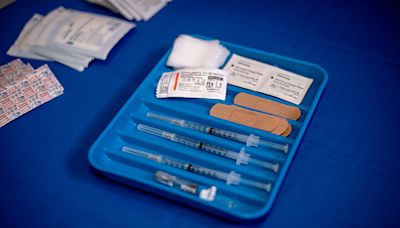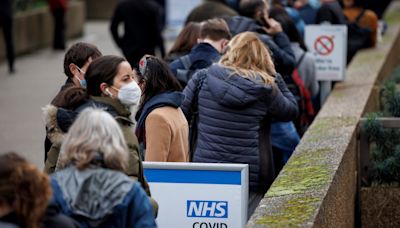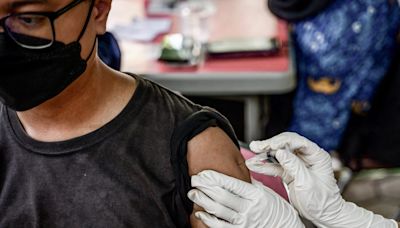Search results
CVS COVID-19 Vaccine Near Columbus OH
www.cvs.comPharmacy LocationBy appointment only3307 East Broad Street(614) 235-8605109 South High Street Suite 100(614) 224-4261759 Neil Avenue(614) 224-92751515 West Broad Street(614) 274-16202100 East Dublin Granville Road(614) 891-14101495 West 5th Avenue(614) 486-71592160 North High Street(614) 294-21052 days ago · As the coronavirus disease 2019 (COVID-19) continues to cause illness, you might have questions about COVID-19 vaccines. Find out about the different types of COVID-19 vaccines, how they work, the possible side effects, and the benefits for you and your family.
Sep 22, 2023 · All COVID-19 vaccines prompt our bodies to recognize and help protect us from the virus that causes COVID-19. Currently, there are two types of COVID-19 vaccines for use in the United States: mRNA, and protein subunit vaccines. None of these vaccines can give you COVID-19. Vaccines do not use any live virus.
- MRNA Covid-19 Vaccines
- Protein Subunit Covid-19 Vaccines
- Composition and Ingredients
Pfizer-BioNTech and Moderna COVID-19 vaccines are mRNA vaccines. mRNA vaccines use mRNA created in a laboratory to teach our cells how to make a protein—or even just a piece of a protein—that triggers an immune response inside our bodies. The mRNA from the vaccines is broken down within a few days after vaccination and discarded from the body. As o...
Novavax COVID-19 vaccine is a protein subunit vaccine. Protein subunit vaccines contain pieces (proteins) of the virus that causes COVID-19. The virus pieces are the spike protein. The Novavax COVID-19 vaccine contains another ingredient called an adjuvant. It helps the immune system respond to that spike protein. After learning how to respond to t...
The 2023–2024 updated COVID-19 vaccines more closely targets the XBB lineage of the Omicron variantand could restore protection against severe COVID-19 that may have decreased over time. The manufacturers use different ingredients in the vaccines. None of the vaccines contain eggs, gelatin, latex, or preservatives. After the body produces an immune...
- COVID-19 Vaccines and How They Work. How do vaccines work? Vaccines help people develop immunity to a virus or other germ. A vaccine introduces a less harmful part of that germ — or something created to look or behave like it — into a person’s body.
- Getting the Vaccine. How many shots are in the COVID-19 vaccine? Pfizer’s and Moderna’s vaccines require two doses given several weeks apart (Pfizer’s second shot is given three weeks after the first, and Moderna’s is four weeks after the first).The COVID-19 vaccine from Johnson & Johnson requires only one dose.
- Protection and Immunity. How long will it protect me? Will I have to get a COVID-19 shot every year? This is a question researchers are eager to answer. People who are infected with the coronavirus show a decline in protection within a few months, but their immunity may last significantly longer than that.
- Vaccine Safety and Side Effects. How will we know if a COVID-19 vaccine is safe and effective? In order to be declared safe and effective, a COVID-19 vaccine must pass certain tests and standards.
Nov 4, 2023 · A coronavirus disease 2019 (COVID-19) vaccine can prevent you from getting COVID-19 or from becoming seriously ill or dying due to COVID-19. But how do the different types of COVID-19 vaccines work? Each COVID-19 vaccine causes the immune system to create antibodies to fight COVID-19 .
On This Page: Understanding COVID-19 Vaccines. COVID-19 Vaccine Resources. Understanding COVID-19 Vaccines. Which COVID-19 vaccines are available in the United States? On September 11, 2023, the U.S. Food and Drug Administration (FDA) updated the emergency use authorizations for two mRNA COVID-19 vaccines.
Sep 25, 2023 · About COVID-19 Vaccines | CDC. Updated Sept. 25, 2023. Español. Print. COVID-19 vaccines are safe and effective. CDC recommends: Everyone 5 years and older get 1 updated COVID-19 vaccine to protect against serious illness. Children aged 6 months – 4 years may need more than 1 dose of updated COVID-19 vaccine to be up to date.






